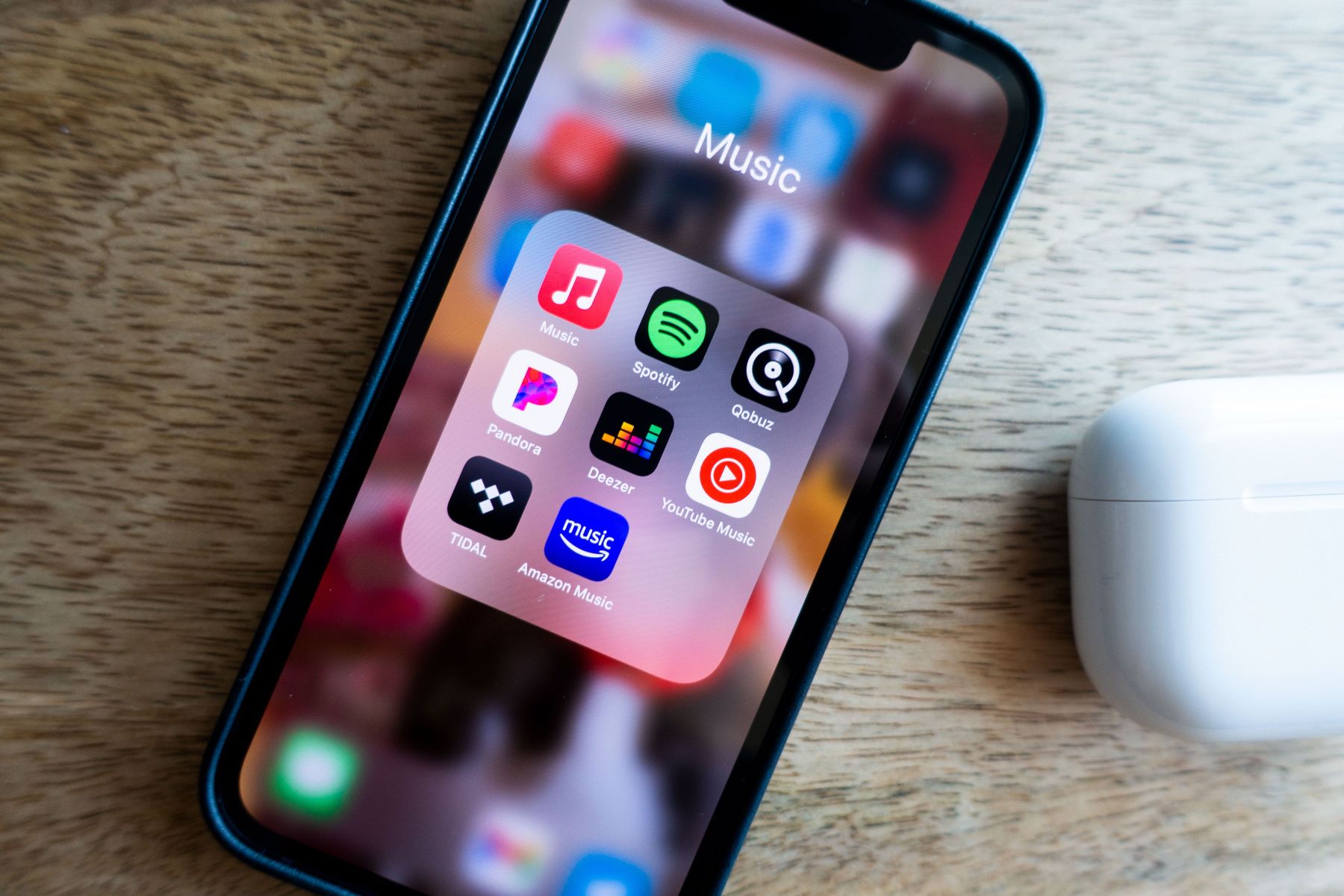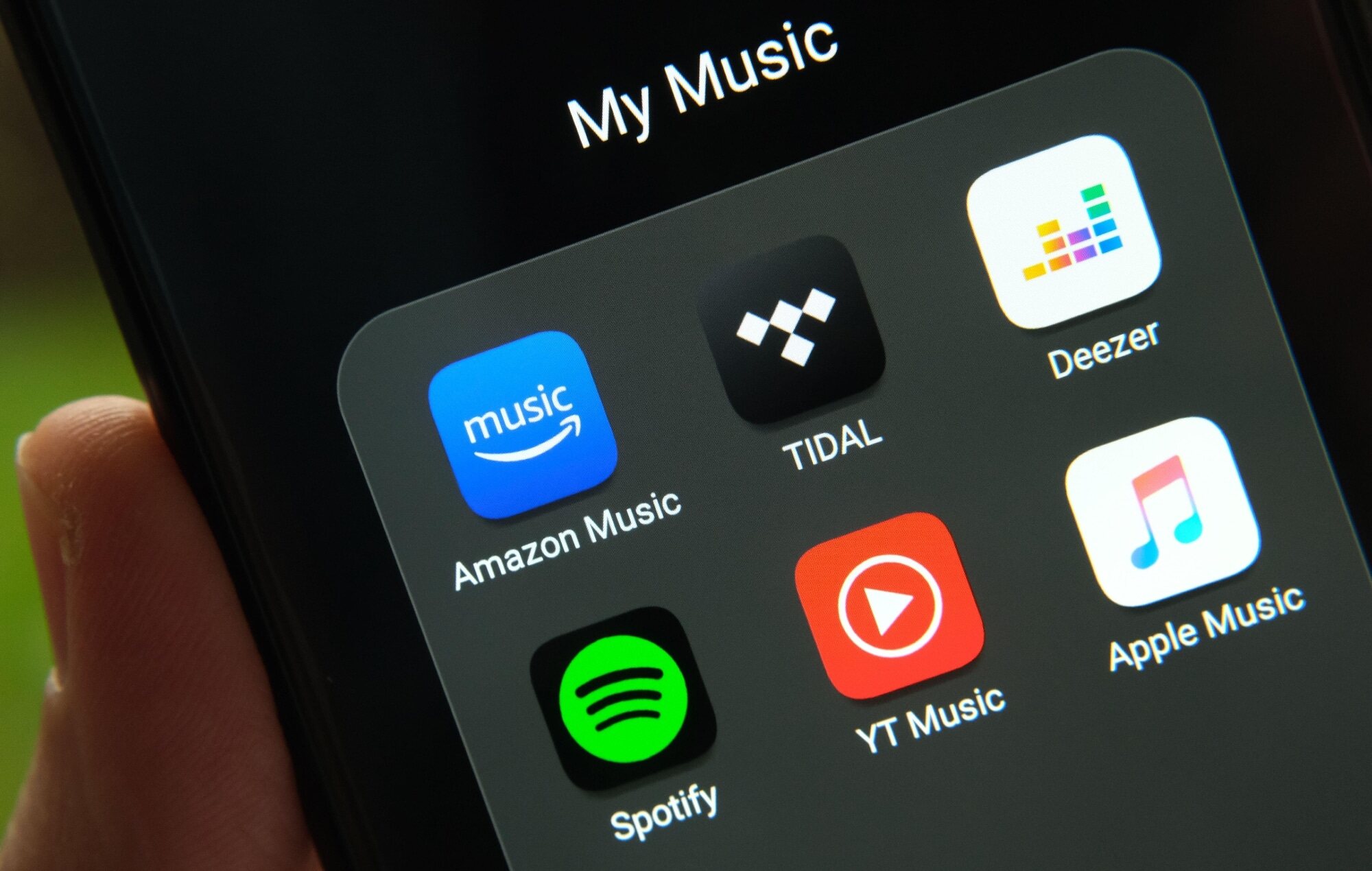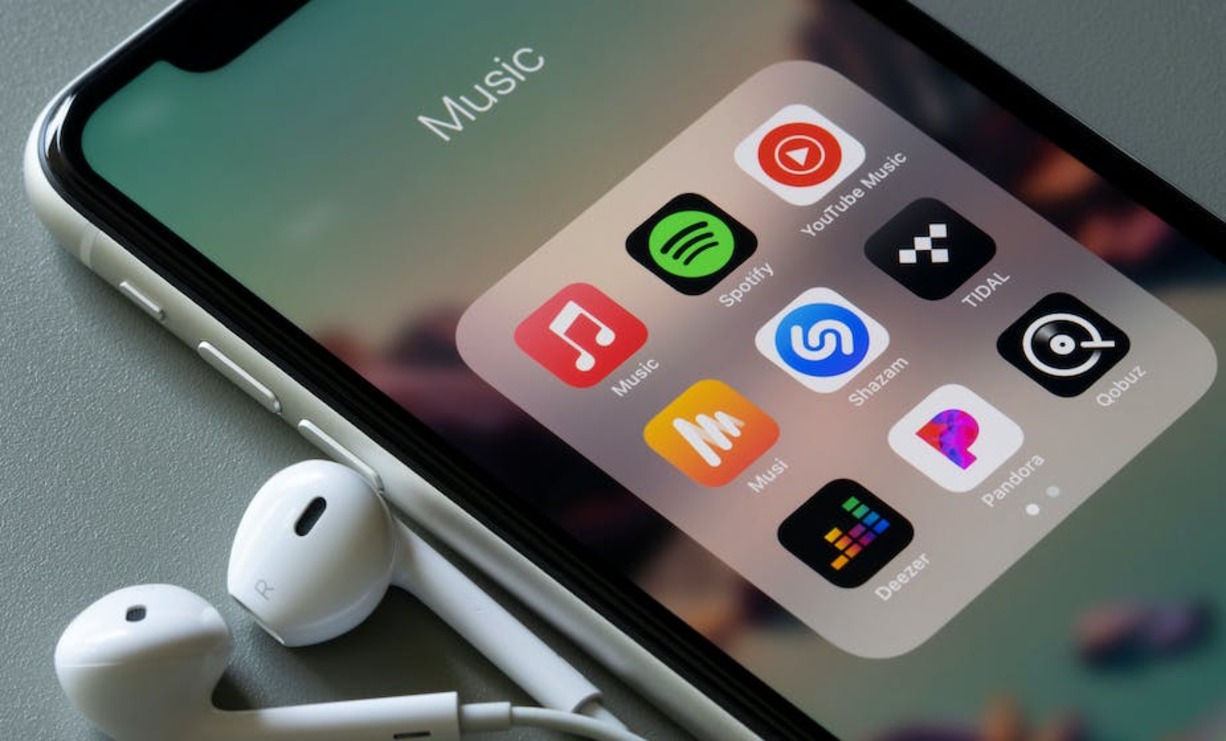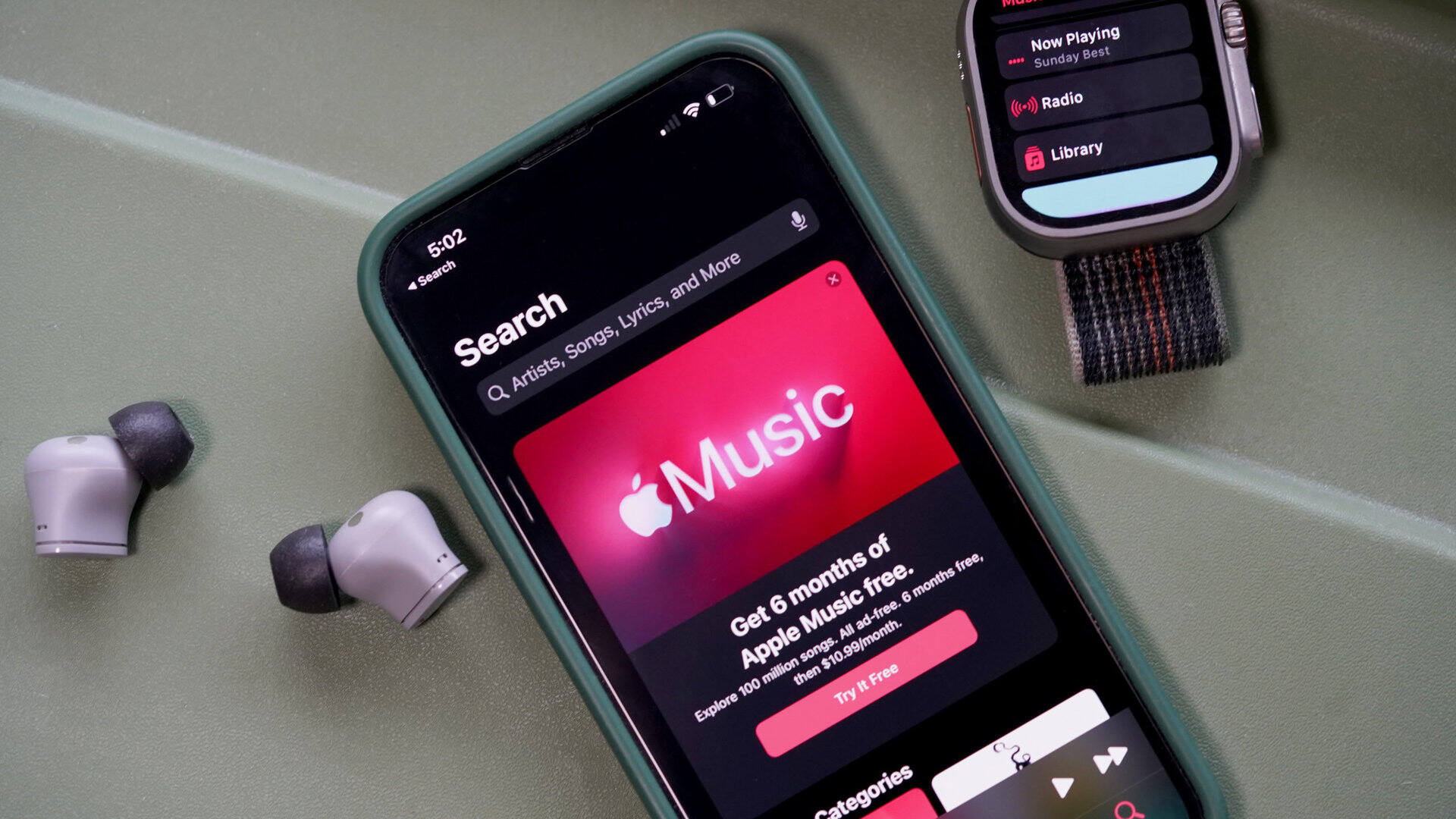Home>Production & Technology>Streaming Service>Was It A Good Decision For Apple To Launch Its Own Music Streaming Service? Why Or Why Not?
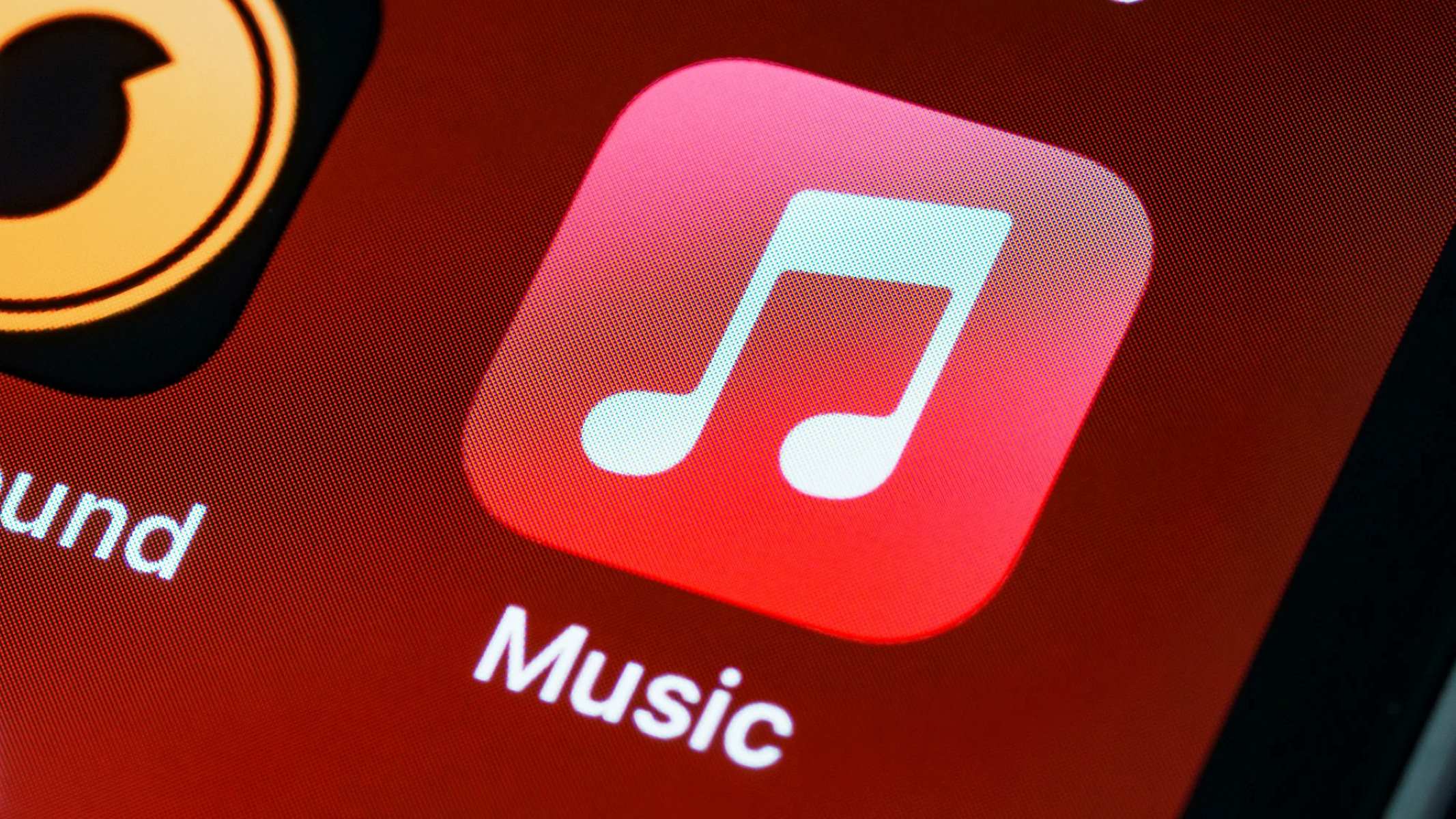

Streaming Service
Was It A Good Decision For Apple To Launch Its Own Music Streaming Service? Why Or Why Not?
Published: February 2, 2024
Discover whether Apple's decision to launch its own music streaming service was a smart move or not. Explore the reasons behind their choice and its potential impact in the competitive streaming service market.
(Many of the links in this article redirect to a specific reviewed product. Your purchase of these products through affiliate links helps to generate commission for AudioLover.com, at no extra cost. Learn more)
Table of Contents
Introduction
Apple, the tech giant known for its innovative products and services, made a bold move when it entered the world of music streaming with the launch of Apple Music. With this new addition to its ecosystem, Apple aimed to compete with established streaming platforms like Spotify and Pandora. But was it a good decision for Apple to venture into the already crowded market of music streaming? In this article, we will explore the benefits and drawbacks of Apple launching its own music streaming service and analyze whether it was a wise move.
In June 2015, Apple Music made its debut, offering users access to a vast library of music and a range of exclusive features. By leveraging its existing user base and strong brand reputation, Apple sought to capture a significant share of the music streaming market.
Apple Music differentiated itself from competitors by integrating various components of the Apple ecosystem. It seamlessly integrated with Apple devices, including iPhones, iPads, Macs, and Apple Watches, providing a unified and streamlined user experience. Furthermore, Apple Music offered a unique combination of streaming, personalized playlists, and curated content from industry experts, known as Beats 1 radio.
The launch of Apple Music brought forth a paradigm shift in the way people consumed music. Instead of owning individual albums or songs, users could now access a vast catalog of music on-demand, without the need for physical media. This transition towards music streaming services signaled a broader shift in consumer behavior, where convenience and accessibility took precedence over physical ownership.
However, the decision for Apple to enter the music streaming industry was not without risks. The market was already saturated with established players, each with their own loyal user base. Furthermore, the music industry had undergone significant changes in recent years, with artists and record labels demanding more favorable revenue sharing models from streaming services.
Despite these challenges, Apple had several compelling reasons to launch its own music streaming service. In the following sections, we will delve into the benefits and drawbacks of Apple Music and assess whether it was a wise decision for the company.
Overview of Apple Music
Apple Music revolutionized the way people listen to and discover music. As a comprehensive music streaming service, it offers a vast collection of songs, albums, playlists, and exclusive content, all accessible through a user-friendly interface.
One of the key features of Apple Music is its massive music library, boasting over 75 million songs. Users can explore music from a wide range of genres and eras, allowing them to discover both popular hits and underground gems. Whether you’re a fan of pop, rock, hip-hop, classical, or any other genre, Apple Music has something to cater to every musical taste.
In addition to its extensive music catalog, Apple Music puts a strong emphasis on personalized recommendations. By analyzing your listening habits, preferences, and even your existing music library, the service curates personalized playlists and suggestions that align with your musical tastes. This tailored approach to music discovery ensures that you are constantly exposed to new artists and tracks that resonate with you.
Another standout feature of Apple Music is its integration with Siri, Apple’s voice-activated assistant. With Siri compatibility, users can effortlessly control their music playback, discover new songs, and even ask for music trivia and recommendations, all through simple voice commands. This hands-free experience enhances convenience and makes it easier than ever to enjoy your favorite tracks.
Apple Music also offers users the ability to follow their favorite artists, stay up to date with their latest releases and exclusive content, and even connect with them through artist-hosted radio shows and interviews. This direct connection between artists and fans adds a unique and personal touch to the music streaming experience.
Furthermore, Apple Music takes advantage of the seamless integration with other Apple devices, ensuring a cohesive user experience across platforms. Whether you’re listening to music on your iPhone, iPad, Mac, or Apple Watch, you can effortlessly switch between devices and continue your music journey without any interruptions.
To enhance the overall listening experience, Apple Music offers high-quality audio streaming, including lossless and spatial audio. This commitment to audio quality ensures that users can enjoy their favorite songs with exceptional clarity and depth.
With all these features combined, Apple Music aims to provide a comprehensive music streaming experience that not only satisfies the needs of music lovers but also enhances their connection with the artists and their craft.
Benefits of Apple launching its own music streaming service
The decision for Apple to enter the music streaming industry and launch its own service, Apple Music, has brought forth several benefits for the company. Let’s explore these advantages:
- Existing User Base: Apple has a vast ecosystem of millions of users worldwide who already own Apple devices, such as iPhones, iPads, and Macs. By introducing Apple Music, the company leveraged its existing user base, providing a seamless and integrated music streaming experience for its customers. This established user base gave Apple a competitive advantage and helped drive initial adoption of the streaming service.
- Brand Reputation and Trust: Apple has a long-standing reputation for delivering high-quality, innovative products and services. The Apple brand is synonymous with excellence and reliability. By launching its music streaming service, Apple was able to leverage its strong brand reputation and the trust customers have in the company. This positioning gave Apple Music a considerable advantage over newer competitors and helped build credibility in the music streaming market.
- Seamless User Experience: Apple Music was designed to seamlessly integrate with the entire Apple ecosystem. Users can effortlessly access and control their music on their iPhones, iPads, Macs, and Apple Watches, all within a unified and consistent interface. This integration creates a seamless user experience, eliminating the need for additional third-party applications and ensuring a cohesive and enjoyable music streaming journey.
- Exclusive Content and Artist Collaborations: Apple Music is known for its exclusive deals and collaborations with artists, allowing the service to offer unique and exclusive content to its subscribers. From album premieres and live performances to behind-the-scenes documentaries and interviews, Apple Music has provided users with exclusive access to content they cannot find on other streaming platforms. This exclusive content helped differentiate Apple Music from its competitors and attracted both music enthusiasts and hardcore fans of specific artists.
- Curation and Personalization: Apple Music’s emphasis on curation and personalization sets it apart from other streaming services. Using algorithms and human editors, Apple Music curates personalized playlists and recommendations based on users’ listening habits, preferences, and even their existing music library. This tailored approach to music discovery ensures that users are constantly exposed to new artists and songs that align with their tastes and preferences.
Together, these benefits have positioned Apple Music as a formidable player in the music streaming industry. With its existing user base, brand reputation, seamless user experience, exclusive content, and personalized curation, Apple Music has successfully attracted and retained a significant number of subscribers since its launch.
Drawbacks of Apple launching its own music streaming service
While Apple Music has seen success in the music streaming market, there are several drawbacks that come with the decision for Apple to launch its own streaming service. Let’s examine these drawbacks:
- Strong Competition: The music streaming industry is highly competitive, with established players like Spotify, Pandora, and Amazon Music already dominating the market. Apple faced fierce competition from these well-established services, each with their own loyal user base. Breaking through this competitive landscape required significant investment and resources.
- Licensing and Royalty Costs: To offer a vast catalog of music, Apple had to negotiate licensing agreements with record labels and artists. These agreements often came at a high cost, as music streaming services are required to pay royalties for each stream of a song. With a large library and extensive user base, Apple Music faced substantial licensing and royalty costs, which cut into its profit margins and required ongoing financial commitments.
- Revenue Sharing with Artists: The music streaming industry has faced criticism over the years regarding its revenue sharing model with artists. Artists and record labels have been vocal about their concerns over the fairness and transparency of the payment structure. Apple Music, like other streaming services, had to navigate these issues and negotiate agreements that satisfy both content creators and the financial sustainability of the platform.
- Dependence on Apple Ecosystem: While the integration with the Apple ecosystem provided benefits, it also created a potential limitation for Apple Music. Users who do not own Apple devices may be less inclined to subscribe to Apple Music due to the exclusive integration features. This dependence on Apple devices may hinder the growth of Apple Music in markets where Apple’s market share is not as dominant.
- User Adoption and Preference: Despite the strong branding and existing user base, Apple Music still had to convince users to switch from their preferred streaming platforms. Many users had already established libraries and playlists on other services, making it difficult for Apple Music to win them over. Additionally, users who primarily use Android devices may be less inclined to switch to Apple Music due to the lack of native Android support for the service.
Despite these drawbacks, Apple Music has managed to establish itself as a significant player in the music streaming industry. However, the challenges and competitive landscape should not be overlooked, as they require ongoing efforts and investments to maintain and grow Apple Music’s market presence.
Analysis of whether it was a good decision for Apple
The question of whether it was a good decision for Apple to launch its own music streaming service, Apple Music, requires a comprehensive analysis of the benefits, drawbacks, and overall market landscape.
On one hand, Apple Music has capitalized on the company’s existing user base, brand reputation, and seamless integration with the Apple ecosystem. These factors have provided a strong foundation for Apple Music’s success, allowing the service to attract and retain millions of users worldwide.
The integration with Apple devices has created a cohesive and convenient user experience, making Apple Music an appealing choice for customers who already own Apple products. This integration, coupled with personalized curation and exclusive content, has helped differentiate Apple Music from its competitors.
However, it is important to consider the drawbacks that come with entering the highly competitive music streaming market. Apple faced strong competition from established players like Spotify and had to invest significant resources to break through. Licensing and royalty costs, as well as ongoing revenue sharing negotiations with artists, added financial complexities to the operation of Apple Music.
Furthermore, Apple’s dependence on its own ecosystem may limit the reach of Apple Music, particularly in markets where Apple’s market share is not as dominant. The service had to compete with other streaming platforms that were already entrenched in the preferences of users, making it challenging to convince them to switch to Apple Music.
However, despite these challenges, the launch of Apple Music has been largely successful. The service has gained a substantial user base and has become a significant player in the music streaming industry. Apple’s reputation for delivering high-quality products and services has helped build trust and credibility in the minds of consumers, boosting the adoption of Apple Music.
Ultimately, whether it was a good decision for Apple to enter the music streaming market depends on various factors, including the long-term growth and profitability of Apple Music. It will also be influenced by the company’s ability to adapt to the ever-changing landscape of the music industry and meet the evolving demands of users and artists.
Looking forward, Apple will need to continue investing in content acquisition, user retention strategies, and innovation to stay competitive in the music streaming arena. By leveraging its strengths and addressing the drawbacks, Apple has the potential to continue thriving in the music streaming market and solidifying its position as a leading player in the industry.
Conclusion
The decision for Apple to launch its own music streaming service, Apple Music, was a bold move that has proven to be advantageous for the company. By capitalizing on its existing user base, brand reputation, and seamless integration with the Apple ecosystem, Apple Music has established itself as a significant player in the music streaming industry.
Apple Music offers a comprehensive range of features, including a vast music library, personalized curation, exclusive content, and integration with Siri. These factors have helped differentiate Apple Music from its competitors and attract millions of users worldwide.
However, the decision also came with its fair share of challenges. Apple faced strong competition from established streaming platforms, licensing and royalty costs, revenue-sharing negotiations, and a dependence on the Apple ecosystem. These hurdles required significant investments and ongoing efforts to overcome.
In analyzing the benefits and drawbacks, it becomes apparent that launching Apple Music was a good decision for Apple. The service has gained a loyal user base, showcased Apple’s commitment to innovation, and provided a seamless and enjoyable music streaming experience for customers.
Moving forward, Apple must continue to adapt to the ever-changing music landscape, invest in content acquisition, and stay attuned to user preferences and artist partnerships. By leveraging its strengths and addressing the challenges, Apple Music has the potential to further solidify its position in the music streaming market.
In conclusion, while entering the music streaming industry was a risk, Apple’s foray with Apple Music has proven to be a wise decision. With its vast resources, strong brand reputation, and focus on user experience, Apple has positioned itself as a formidable player in the music streaming market, providing users with an exceptional platform to explore, discover, and enjoy their favorite music.

